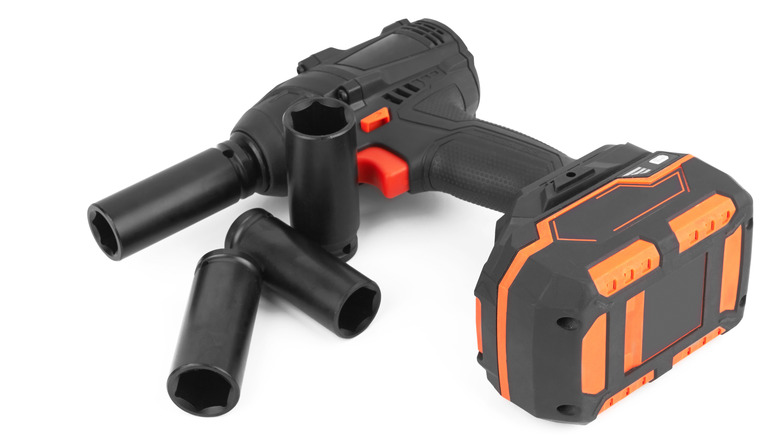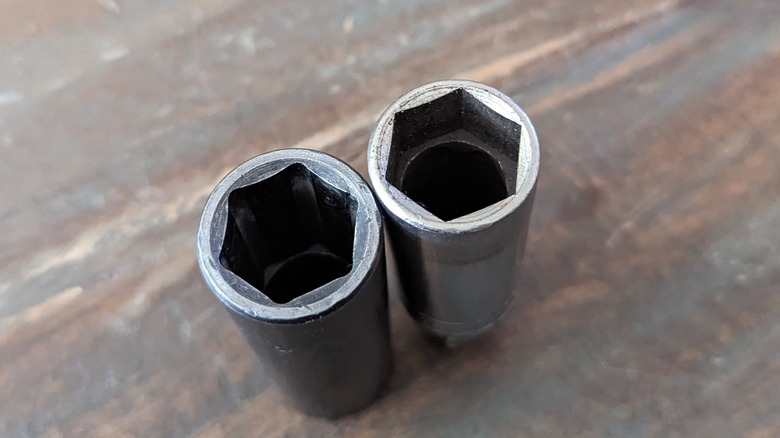Are Impact Sockets Overpriced? Here's Why You Might Want To Upgrade From Regular Sockets
One of the first purchases that an aspiring do-it-yourself mechanic might make is a set of sockets to quickly tighten or loosen various nuts, bolts, and hex-headed screws. The humble socket set containing a variety of sizes is truly a capstone of garage gadgets everywhere, whether for repairing automobiles or just assembling your kid's new backyard swing set. However, it is fair to question whether the ubiquitous chrome versions are good enough, or if you should splash out the cash for a set of impact sockets, or perhaps even both.
Impact sockets, as the name implies, are designed for use with impact drivers. Traditionally, impact drivers were pneumatically powered by compressed air and capable of tightening or breaking loose stuck fasteners with a tremendous amount of available torque simply by pulling a trigger. If you have ever watched a tire shop remove or install your car's wheels, the noisy "gun" that pros utilize for this task is an impact driver. As cordless tool battery technology progresses, such power tools are no longer just the domain of professional mechanics and are becoming increasingly common in home workshops.
Whether it's worth it or not to invest in a set of impact sockets largely depends on whether you already own or intend to purchase an impact gun. Regular chrome-plated sockets will fit on an impact gun and work fine in a pinch, but eventual fatigue cracking and even shattering are virtually inevitable.
Impact sockets are built tougher
As you might imagine, the sockets for use on impact drivers have to stand up to abuse far in excess of what a human can dish out with an old-fashioned ratcheting handle. As such, impact sockets are heavier, with beefy chromoly construction and thicker walls to stand up to the rigors of daily use and hammering vibration.
Similarly, impact sockets eschew the chrome finish of standard sockets in favor of a simple corrosion-resistant black finish because chrome is vulnerable to cracking. Some regular non-impact sockets can also be black for reasons of aesthetics so do pay attention, but a reasonably reliable rule of thumb is that black is associated with impact sockets.
Note that impact sockets are not without some drawbacks. Their increased thickness — the above image shows two ¾-inch sockets (one impact and one regular) — means that they may not be able to fit into tight spaces that a thinner-walled socket can go, and they weigh noticeably more too which can be fatiguing for hand use. They're also more expensive, though not prohibitively so. For example, retailer Home Depot sells an 11-piece ½-inch drive chrome-plated socket set from its in-house Husky brand for $38.97 while a nearly identically sized 11-piece impact set from the same brand sells for $62.97, which also includes a storage case.
In a nutshell, owners of pneumatic or battery-powered impact tools will be well served to invest in the proper impact socket type for longevity and safety against breakage, though they might also wish to purchase a thinner-walled set of conventional sockets for lighter-duty all-purpose tasks and tight spaces. For exclusive use with good old-fashioned ratcheting handles, a cheap set of chrome sockets will do just fine.

